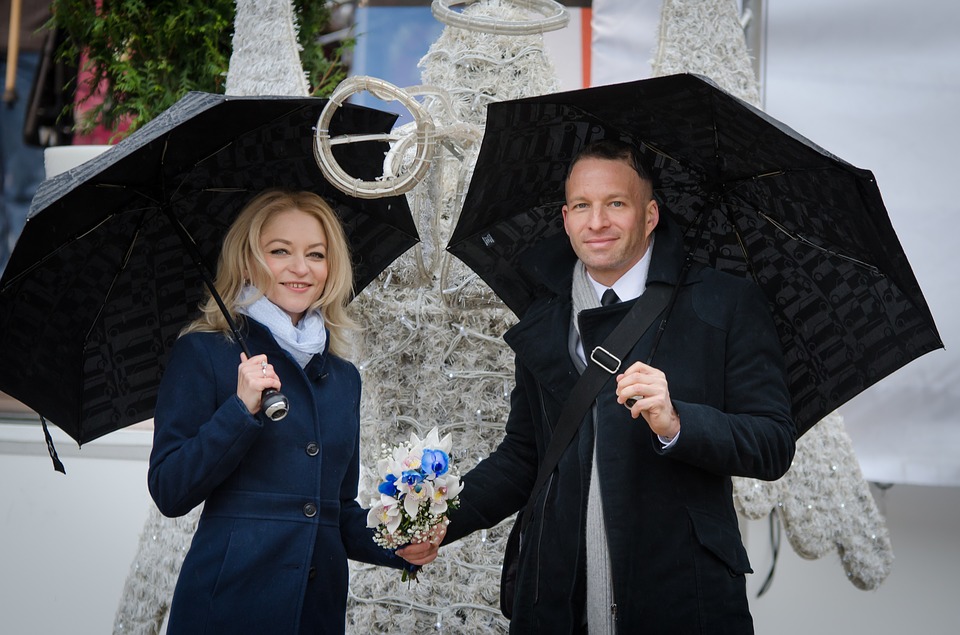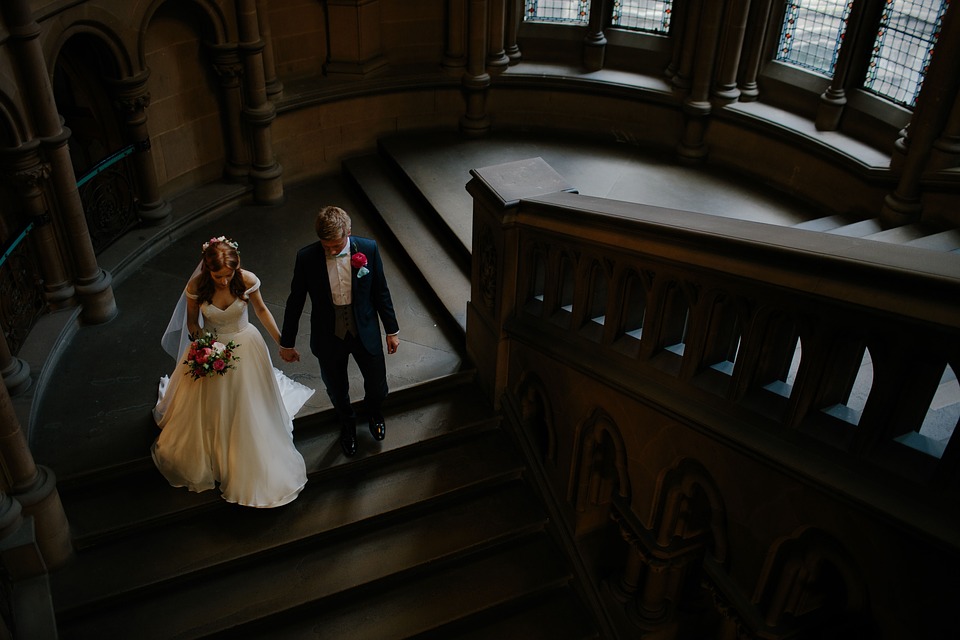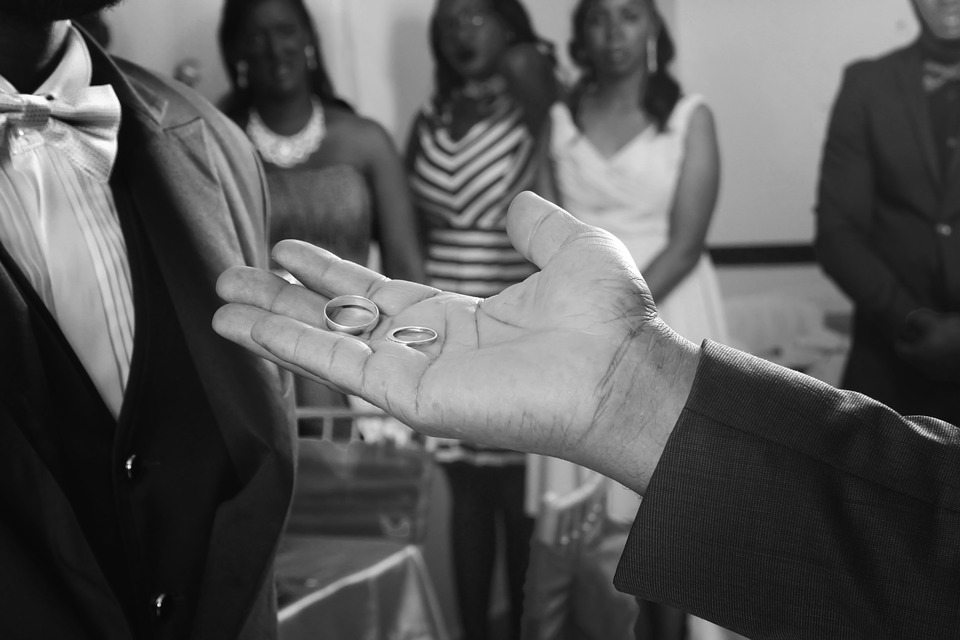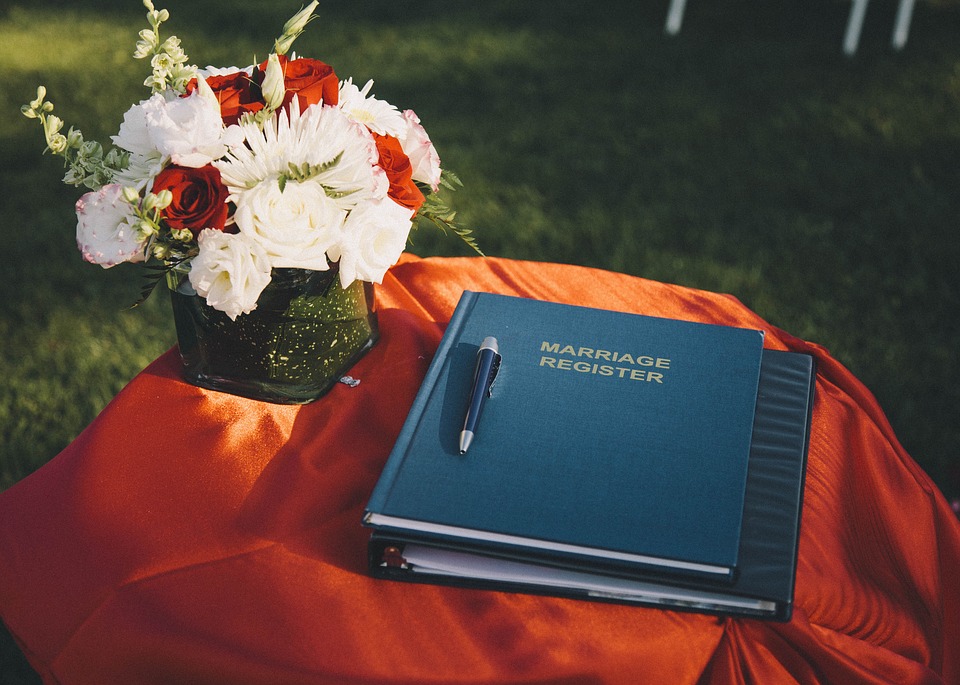The legal stuff may be boring, but it’s an important practical part of the wedding process. In Northern Ireland, you can choose between a religious or civil ceremony and there are a number of steps to take before you officially say “I do”.
To save you the trouble of trawling the net, here’s a simple check list of what you need to know if you want to wed in NI:

Religious or Civil Ceremony?
Before you head to see the Registrar, you need to decide whether you would like a religious or civil ceremony. A religious marriage can only be performed by a minister, priest or pastor, who has been registered as an Officiant and authorised by the Registrar General to conduct religious marriages. Civil marriages, on the other hand, can only be performed by the Registrar or Deputy Registrar for the District in which the marriage is taking place. You can hold the ceremony in the Registrar’s Office or in an approved venue.

Arranging The Venue
Prior to giving notice of your marriage, the next step is decide a time and a place for the wedding. For religious ceremonies, consult with the Officiant and agree a date and a venue. This can take place anywhere in Northern Ireland. Don’t forget to make arrangements early with the Registrar – different times of year will be more popular than others so always check availability.
A civil ceremony can be conducted in the Registrar’s Office or in an approved place. Once the place has been chosen you can apply for a temporary approval for a civil ceremony. Contact the Registrar for advice on how to apply and see here for more information on approved venues: www.nidirect.gov.uk/publications/venues

Witnesses
Next, choose two people over the age of 16 to be present as witnesses to your wedding. This applies to both religious and civil ceremonies.
Giving Notice
For all marriages in NI, you need to give notice in the 12 months prior to the date of the wedding. Ensure you submit your notice in good time, usually around eight weeks before the marriage or ten weeks if you have been married before. The minimum period is 28 days beforehand, unless in exceptional circumstances. Download and print out a marriage notice application form here.
Once the application, supporting documents and any fees have been submitted, and the Registrar is happy there is no reason why the marriage can’t take place, they will go ahead and prepare a marriage schedule.

Marriage schedule
Marriages cannot proceed without a marriage schedule, which is issued to the couple by the Registrar. This won’t be issued more than 14 days before the wedding and you will have to collect and sign for it. This is the document that is given to the person performing the marriage before the ceremony.
After the ceremony, the bride and groom will sign the marriage schedule, along with the person performing the marriage and the two witnesses. For civil ceremonies, there will be nothing of a religious nature, although music, exchange of rings, flowers arrangements and any other additional aspects of the ceremony should be discussed with the Registrar beforehand. Ceremonies last around 10 or 15 minutes and there will usually more than one planned in a day, so make sure things kick off on time!

Registering your marriage
After civil ceremonies, the Registrar will register the marriage immediately. Religious ceremonies, however, you will have to return the schedule to the Registrar within three days, after which you can order a marriage certificate.
Click here for more information about ordering a marriage certificate.
Fees
For civil ceremonies, there are a number of fees associated with getting married including a fee for giving notice, a fee for solemnisation of the marriage and one for use of the council office/room or for the Registrar to attend an approved venue.
You pay these fees along with your notice application. It costs £22 to submit each notice form, and the fees for solemnisation vary depending on when the marriage will take place. There will be a fee for marrying at a Registrar’s office or for a Registrar to attend an approved venue. Speak to the relevant council to find out details about these fees: www.nidirect.gov.uk/contacts/district-registrars-northern-ireland
By Abby Williams, Excalibur Press








